Here’s what to do when Safari quits unexpectedly
Apple’s Safari is one of the speediest and most stable browsers around. But occasionally it does run into problems. One of these is that it can shut down, displaying a message that says ‘Safari quit unexpectedly’ or something similar. Fortunately, there are several things you can do to make sure the problem doesn’t re-occur.
Tip: Before we get started, some of the tips below involve several steps and can be a bit laborious. There is an easy way to deal with that, though. CleanMyMac contains tools that allow you to quickly free up RAM, among other things. And the lack of RAM memory is what sometimes crashes browsers. So, check this app out (or get a free trial of this software).
What to do if Safari quits unexpectedly on your Mac
If you find yourself frustratedly googling ‘why does Safari keep closing on my Mac?’, here’s what to do.
Check your extensions
Out of date or corrupt extensions are one possible cause of problems with Safari.
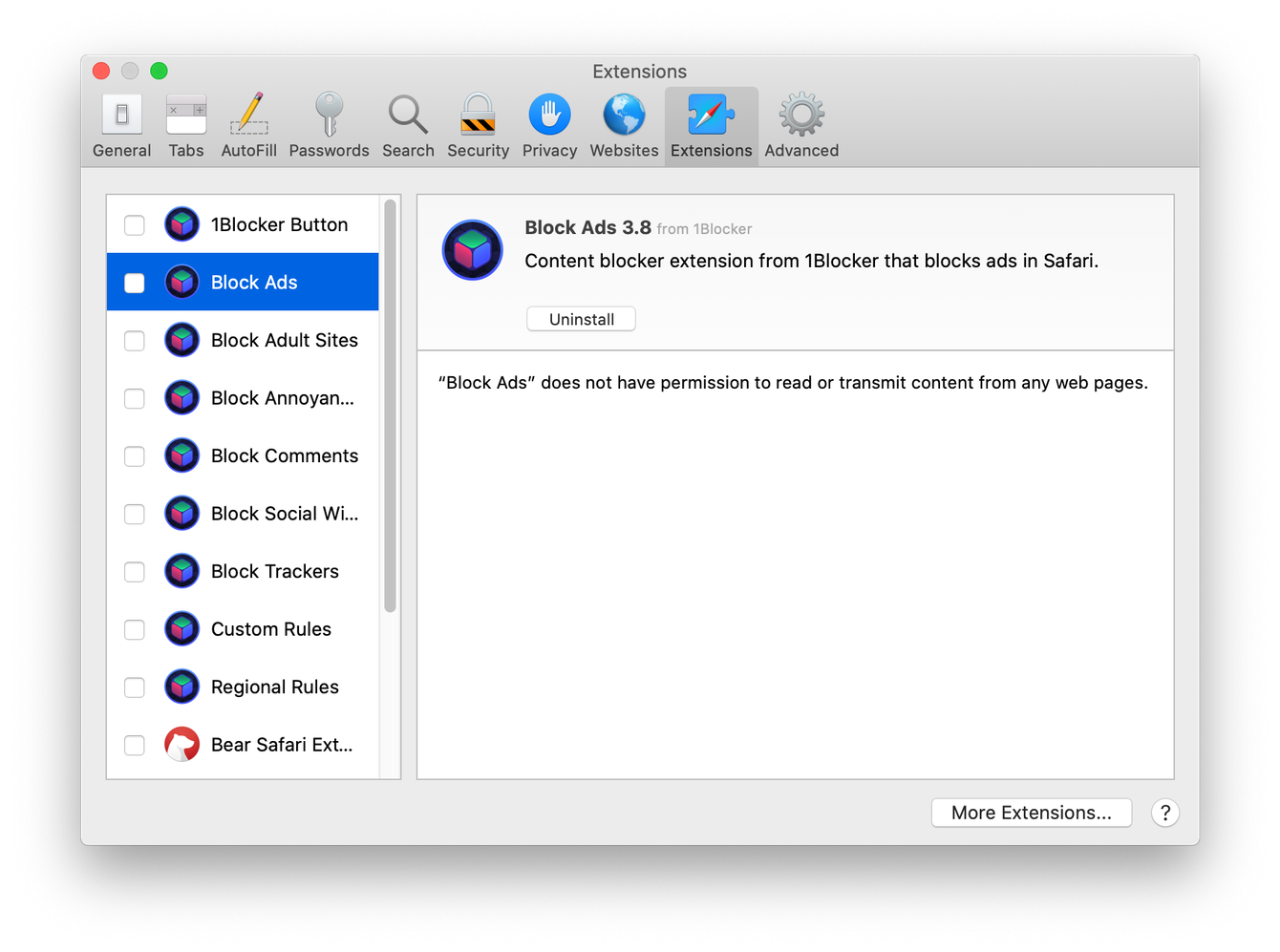
-
Launch Safari.
-
Click on the Safari menu and choose Preferences.
-
Select the Extensions tab.
-
Review the list of installed extensions.
-
If you see any that look suspicious or that you no longer use, click on them and press Uninstall.
Remove website data
Data like cookies and temporary files can sometimes cause problems for Safari. The solution is to remove them. Unfortunately Safari’s tools for doing that don’t allow for a great deal of choice in what to remove.
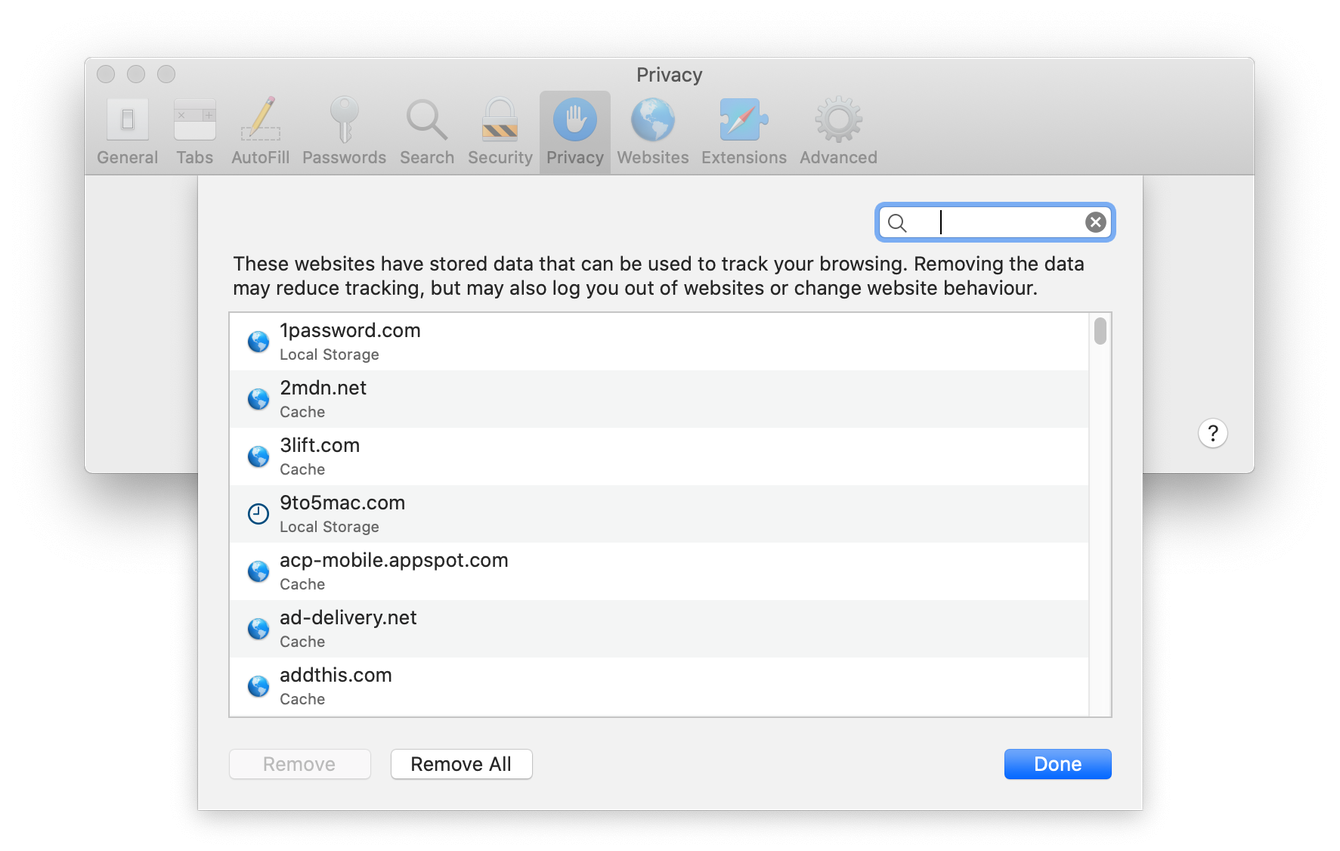
-
Go to Preferences in Safari again.
-
Click on Privacy.
-
Press the button labelled ‘Manage Website Data’
-
To remove data for individual websites, browse through the list until you find the site, or search for it using the search box. When you find it, select it.
-
Click Remove.
-
To remove data for all websites, press Remove All.
-
Press Done when you’re finished.
The above steps remove all the data, like cookies for shopping carts, that websites use to track what you do while you’re on the site. It may mean that you have to log in to sites again, even if you previously selected ‘Keep me logged in’. The steps above don’t remove your browser history.
Change your startup preferences
If you find that Safari quits unexpectedly as soon as you start up, it could be that a tab or window that you had open the first time it quit reopens when you relaunch and causes it to crash again. Here’s how to prevent that.
-
In Safari Preferences, choose the General tab.
-
If the top menu, ‘Safari opens with’ is set to ‘all windows from last session, or ‘All private windows from last session,’ click on it.
-
Choose ‘A new window’ or ‘A new private window’
-
Close Preferences and restart Safari.
Stop plug-ins
Plug-ins allow users to see and hear different types of content on websites, like Flash animation. If none of the steps above have solved your problem, try turning them off.
-
Open Safari Preferences and click Advanced.
-
Check the box next to ‘Stop plug-ins to save power’
-
Close preferences.
Use the Develop menu to empty cache
As we said earlier, using Manage Website Data to get rid of cache files isn’t ideal. However, there is another way, using Safari’s Develop menu.
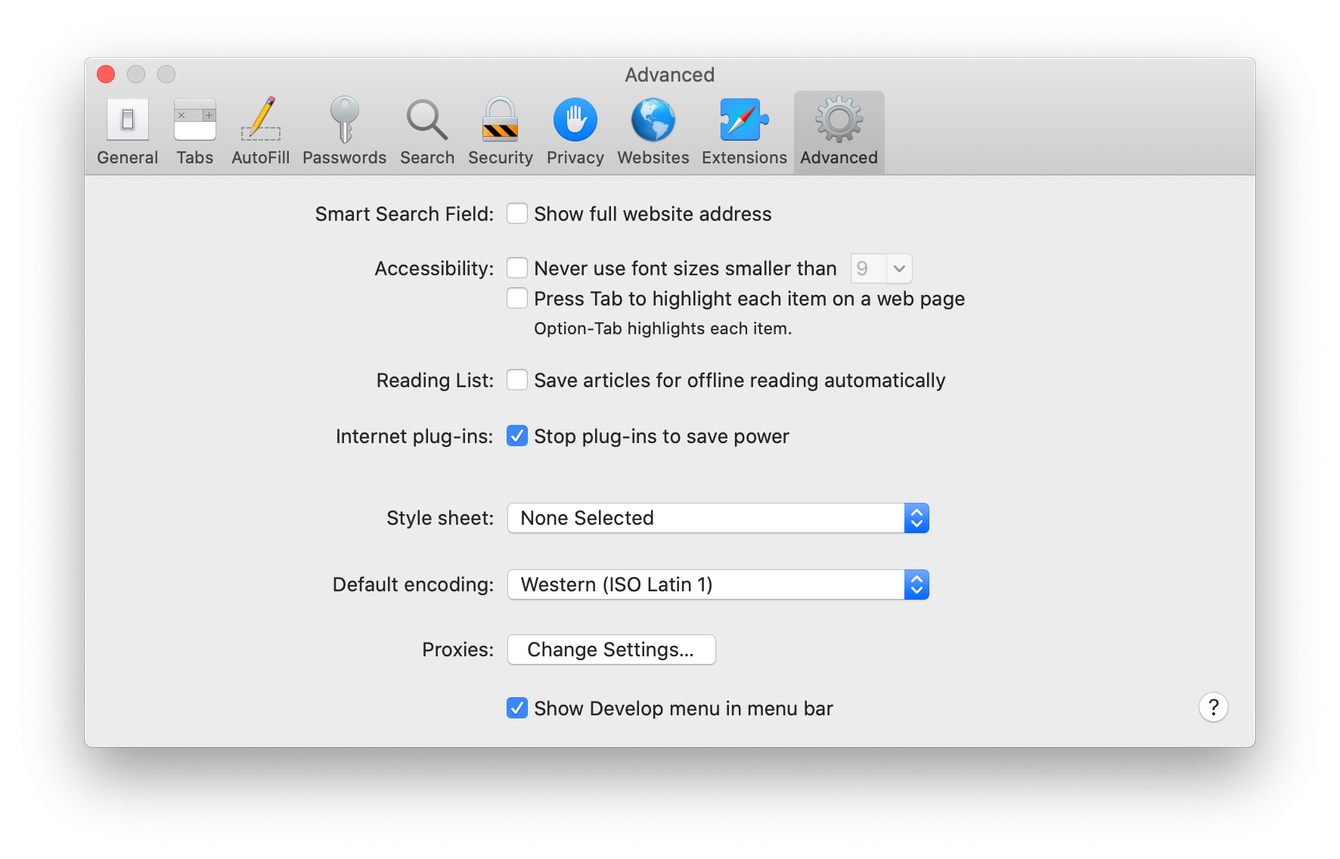
-
Launch Safari’s Preferences again and click on the Advanced tab.
-
At the bottom of the window, check the box next to ‘Show Develop menu in menu bar’
-
Close Preferences.
-
Click on the Develop menu.
-
Choose Empty caches.
Manually remove Safari data files
If none of the above fix the problem, you’ll have to go deeper and search for data files in the Finder and remove them. Here’s how to do that.
-
Click on the Finder in the Dock and navigate to the Go menu.
-
Choose Go to Folder
-
In the box, paste in: ~/Library/
-
You will find yourself in your user Library, where preferences and cache files are found.
-
Choose the Caches folder and look for the following files
com.apple.Safari
com.apple.Safari.SearchHelper
com.apple.SafariServices
com.apple.WebKit.PluginProcess
com.apple.WebProcess
Metadata/Safari
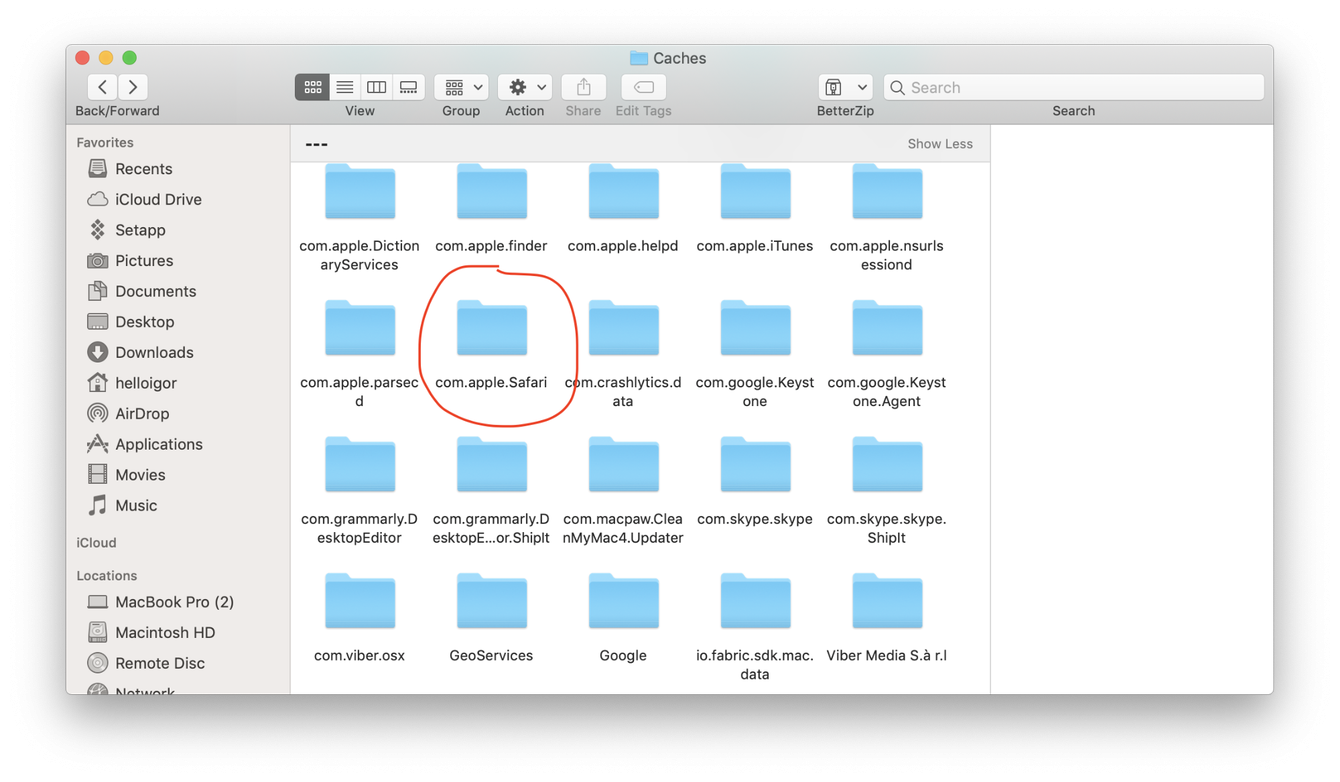
- Drag any of the files you find to the Trash.
- Now, look for a folder called Preferences and drag the following two files to the Trash, if they are there:
com.apple.WebKit.PluginHost.plist
com.apple.WebKit.PluginProcess.plist
com.apple.Safari.plist
- Finally, look for a folder called Saved Application State and drag this file to the Trash
com.apple.Safari.savedState
- Empty the Trash.
How to fix ‘Safari quit unexpectedly’ the easy way
If all the steps above seem like a lot of time-consuming work, you’ll be pleased to know there is an easier way to clear website data and get rid of caches. CleanMyMac does all of this and more. Here’s how to use it.
You can start your free CleanMyMac trial here.
- After you’ve opened the app, click on the Applications in the sidebar.
- Click Scan > Manage My Applications.
- Choose Uninstaller and find Safari in the list.
- Now, select everything except Binaries and click Remove.

This operation will reset the app — the process we've discussed above but this time we’ve done it with CleanMyMac with much less dirty work.
More Safari magic with CleanMyMac
As we’ve said above, Safari often quits when your Mac doesn’t have enough temporary memory, or RAM. There’s a button to instantly free up RAM in CleanMyMac.
Go to the Performance tab > Maintenance Tasks > Free up RAM
How to solve Safari crashing issue
If Safari keeps crashing, then you're no doubt familiar with the Force Quit routine. It's actually pretty annoying. Luckily here are a few tips and tricks to help you out.
Close all browsing tabs
You could be overloading Safari if you have too many browser windows open, it sounds obvious, but so many of us let multiple windows sit idly. Take a quick look now, and close any windows you aren’t using. Open windows put extra pressure on the browser to perform. Closing them can free up speed, helping Safari not to crash.
Closing all tabs can stop Safari from crashing:
-
Open Safari, click File in the top menu.
-
Now, select Close All Windows.
Turn off the Wi-Fi
And then try connecting once again. The issue may be caused by unstable connection.
Turn off search suggestions
A helpful tip to stop Safari from crashing is to turn off search suggestions. This simple trick can give a performance boost to older Macs while using Safari.
Manage search suggestions:
-
Open the browser and select Safari in the top menu.
-
Now, select Preferences.
-
Navigate to the Search tab.
-
Uncheck Include Search Englin
-
Close and reopen Safari.
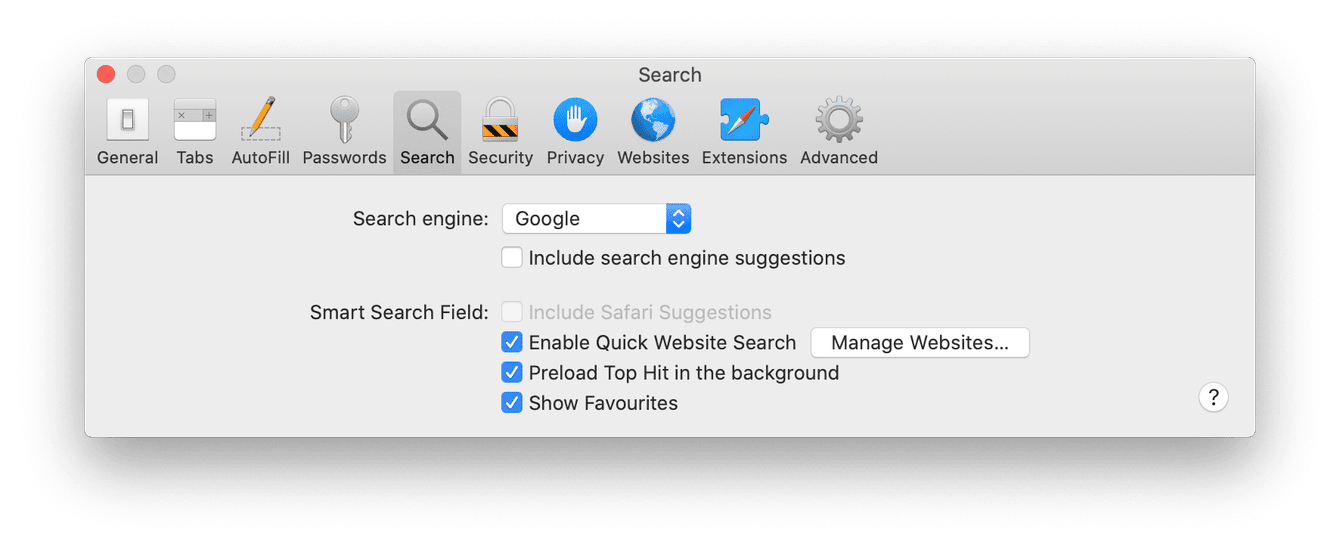
Download a backup browser
Having an alternative browser installed on your Mac, just as a backup, is always a good idea if you can't resolve issues with Safari. That way, you can open a browser to find some answers and troubleshoot help with Apple support.
When Safari quits unexpectedly, it can be frustrating, especially if it happens repeatedly. However, if you follow the steps above, you should be able to fix the problem quite quickly. It will be even quicker and easier if you use CleanMyMac to help.

